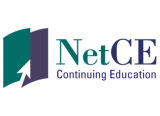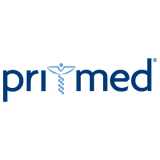An Exploratory Study of a Fourth-Year Narrative Medicine Elective: Promoting Strategies for Personal Well-Being and Improved Patient Care

Narrative medicine promotes the effective practice of medicine by requiring clinicians to listen to, reflect on, and manage not only the physiology of disease but also patient stories.
Category
Format
- Journal
Credits
- 1.00 AMA PRA Category 1 Credit™
Religion/Spirituality Curriculum in US Osteopathic Medical Schools: A Survey

Education on aspects of religion/spirituality is a required component of medical education. Osteopathic medical schools place an emphasis on the body, soul, and mind; however, it appears that the number of schools with an established curriculum of religion/spiritual
Category
Format
- Journal
Credits
- 1.00 AMA PRA Category 1 Credit™
The Coronavirus Disease (COVID-19) Pandemic

Widespread outbreaks of novel (new) coronavirus infection have occurred in each of the past two decades, and the current outbreak poses the third threat of a severe novel coronavirus epidemic on a global scale.
Category
Format
- Self-study / Enduring
Credits
- 2.00 MOC
- 2.00 Approved Continuing Education (ACE)
- 2.00 AMA PRA Category 1 Credit™
- 2.00 ANCC
- 2.00 Association of Social Work Boards (ASWB)
Promoting the Health of Gender and Sexual Minorities

The gender and sexual minority (GSM) population is a diverse group that can be defined as a subculture. It includes homosexual men, lesbian women, bisexual persons, transgender individuals, and those questioning their sexual identity, among others.
Category
Format
- Self-study / Enduring
Credits
- 5.00 Approved Continuing Education (ACE)
- 5.00 Association of Social Work Boards (ASWB)
Rural Health, Mental Health, and Social Work

Although there are benefits and necessities to living in rural areas, many living in these areas experience significant health and mental health disparities and challenges in accessing services.
Category
Format
- Self-study / Enduring
Credits
- 5.00 Approved Continuing Education (ACE)
- 5.00 Association of Social Work Boards (ASWB)
Counseling Patients at the End of Life

End-of-life decisions can be complex and challenging. Health and mental health professionals can help with their expertise, whether it is for the person facing death, their family, surrogate decision makers, or caregiver.
Category
Format
- Self-study / Enduring
Credits
- 5.00 Approved Continuing Education (ACE)
- 5.00 Association of Social Work Boards (ASWB)
Setting Ethical Limits: For Caring and Competent Professionals

Without proper self-care, boundaries, and awareness (transference), therapists become vulnerable to burnout and vicarious traumatization. This can result in a risk of therapeutic effectiveness, loss of trust with clients, and possible ethical crossings or violations.
Category
Format
- Self-study / Enduring
Credits
- 6.00 Approved Continuing Education (ACE)
- 6.00 Association of Social Work Boards (ASWB)
Ethics for Social Work

Ethical issues do not exist within a vacuum; rather, they emerge, evolve, and adapt within the sociocultural context of a particular society. In past decades, the field of professional ethics has received increased attention.
Category
Format
- Self-study / Enduring
Credits
- 6.00 Approved Continuing Education (ACE)
- 6.00 Association of Social Work Boards (ASWB)
New and Emerging Therapies for Agitation Associated with Dementia Due to Alzheimer’s Disease (AD) An Interactive Learning Experience

Agitation is among the most common behavioral symptoms in patients with dementia, including Alzheimer’s dementia. It exacts a significant burden on patients because it is associated with not only greater morbidity and mortality, but also a faster cognitive and functional decline.
Category
Format
- Self-study / Enduring
Credits
- 0.36 AANP Contact Hours
- 0.36 AANP Pharmacology Contact Hours
- 0.50 AMA PRA Category 1 Credit™
Frontotemporal Dementia

Frontotemporal dementia (FTD) is a group of degenerative brain disorders causing progressive deterioration in behavior, language, and/or movement. There are presently approximately 60,000 people with FTD in the United States.
Category
Format
- Self-study / Enduring
Credits
- 2.00 AMA PRA Category 1 Credit™

 Facebook
Facebook Twitter
Twitter LinkedIn
LinkedIn Forward
Forward